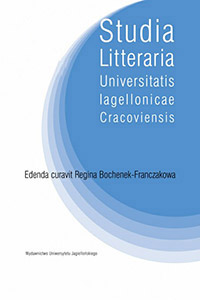“But Men May Construe Things After Their Fashion”: Julius Caesar and Fascism
“But Men May Construe Things After Their Fashion”: Julius Caesar and Fascism
Author(s): Elisa FortunatoSubject(s): Theatre, Dance, Performing Arts, Cultural history, Studies of Literature, Translation Studies, Drama
Published by: Wydawnictwo Uniwersytetu Jagiellońskiego
Keywords: translation; fascism; self-censorship;
Summary/Abstract: This paper studies censorship and self-censorship in translations during the fascist regime, and the fine boundary between the two (Bonsaver, Fabre, Rundle). It focuses, in particular, on the history, of Shakespeare’s Julius Caesar translations released during fascism in Italy. Shakespeare’s play was read as an appraisal of the Roman qualities, while the dangerous questions about power and conspiracy that the play contains were ignored. This superficial reading explains why, on the one hand, translations of Julius Caesar increased in the fascist years and, on the other hand, why it was performed only once (in 1935 by Tamberlani). The act of translating is by definition an act of manipulation, while on the stage theatrical properties (e.g., Julius Caesar’s corpse) are not concealable. Examining the translations issued during the regime, and in particular the translators’ notes, it is possible to identify a general translation trend that can be interpreted as an act of submission to the dominant thinking (Tymoczko).
Journal: Studia Litteraria Universitatis Iagellonicae Cracoviensis
- Issue Year: 13/2018
- Issue No: 3
- Page Range: 195-204
- Page Count: 10
- Language: English

